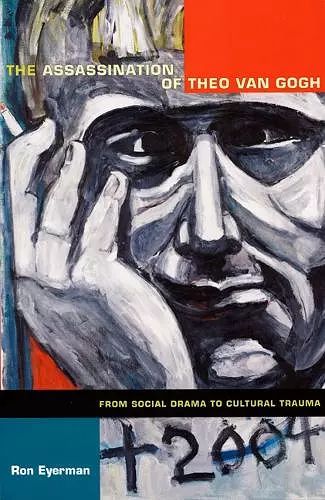The Assassination of Theo van Gogh
From Social Drama to Cultural Trauma
Format:Paperback
Publisher:Duke University Press
Published:28th Aug '08
Currently unavailable, and unfortunately no date known when it will be back

Discusses the motives, mass media attention and narrative interpretation of the November 2004 murder of Dutch filmmaker Theo van Gogh
Explores the multiple meanings of the November 2004 murder of Dutch filmmaker Theo van Gogh and the different reactions it elicited: among the Amsterdam-based artistic and intellectual subculture, the wider Dutch public, the local and international Muslim communities, the radical Islamic movement, and the broader international community.In November 2004, the controversial Dutch filmmaker Theo van Gogh was killed on a busy street in Amsterdam. A twenty-six-year-old Dutch citizen of Moroccan descent shot van Gogh, slit his throat, and pinned a five-page indictment of Western society to his body. The murder set off a series of reactions, including arson against Muslim schools and mosques. In The Assassination of Theo van Gogh, Ron Eyerman explores the multiple meanings of the murder and the different reactions it elicited: among the Amsterdam-based artistic and intellectual subculture, the wider Dutch public, the local and international Muslim communities, the radical Islamic movement, and the broader international community. After meticulously analyzing the actions and reputations of van Gogh and others in his milieu, the motives of the murderer, and the details of the assassination itself, Eyerman considers the various narrative frames the mass media used to characterize the killing.
Eyerman utilizes theories of social drama and cultural trauma to evaluate the reactions to and effects of the murder. A social drama is triggered by a public transgression of taken-for-granted norms; one that threatens the collective identity of a society may develop into a cultural trauma. Eyerman contends that the assassination of Theo van Gogh quickly became a cultural trauma because it resonated powerfully with the postwar psyche of the Netherlands. As part of his analysis of the murder and reactions to it, he discusses significant aspects of twentieth-century Dutch history, including the country’s treatment of Jews during the German occupation, the loss of its colonies in the wake of World War II, its recruitment of immigrant workers, and the failure of Dutch troops to protect Muslims in Srebrenica in 1995.
“Ron Eyerman has combined his two exquisite skills of an exceptionally thorough researcher and a consummate theorist to produce a uniquely enlightening study of the intricate mechanism which—in our times of the frailty of social setting, acute public uncertainty, and heightened susceptibility to moral panics—leads to the production of ‘traumatic events,’ subsequently deployed as catalysts in the reshaping of public memory and reinterpretation of collective identities. A masterly study of one of the most neuralgic phenomena in contemporary culture, bound to inform and direct our efforts to comprehend its dynamics.”—Zygmunt Bauman, Professor Emeritus, University of Leeds and University of Warsaw
“Ron Eyerman has produced a theoretically sophisticated analysis of the murder of Theo van Gogh, evoking themes of globalization, immigration, free speech, law and justice, gender relations, journalism and the media, political tolerance, and multiculturalism, all of which are at the center of debates in the contemporary social sciences. This is an important book.”—Robin Wagner-Pacifici, author of The Moro Morality Play: Terrorism as Social Drama
ISBN: 9780822344063
Dimensions: unknown
Weight: 322g
232 pages